Fable III
"A Napoleonic fairytale."
That certainly explains why Che suddenly popped up on Lionhead's website the other week - drat, no Cuban Dungeon Keeper sequel just yet - but it's a direction that raises as many questions as it answers. Is Fable III going to lurch suddenly from one style of game to another? "Bringing in ruling the land is one of the big changes," admits head of franchise Louise Murray, who's job is to make sure that every decision fits in with Lionhead's vision of where Fable is going. "How we present that, and the mechanics of how you interact with that is certainly one of the game's big challenges."
So is the life simulation aspect of Fable taking a step forward? "Absolutely," says Murray. "We're making the sim elements more accessible, and making them a part of the story properly. We are still having Fablesque stuff, however: if you want to drill down into the sim activities and that alone, it's still an option, but hopefully most players will be more exposed to the sim element of it in the first place - but not at the cost of distracting from the adventure. Getting that balance is something we iterate on. It's like combat - it's a fundamental piece of the game, but how do you bring that in, without making it just a combat game?"
It's when she mentions combat, calling to mind Fable II's easy pleasures of wading into a gaggle of bandits without a care in the world - certainly without pondering how the bandits impacted Albion's economy and whether a sword through the brain was a smart political idea - that it becomes apparent how much Fable is in flux. Maybe the forums were right, and the series is becoming an RTS - hardly a reach for Lionhead, after all.
The team is adamant that that's not the case, but with its mix of third-person action and that wider, loftier perspective it sounds like a variation on that theme - it sounds a little, in fact, like Don's View, the RTS metagame that briefly defibrillated Godfather II. At the mention of that, Atkins, polite as he is, can barely suppress a brutal wince and a sound that, after several attempts at transcribing, is probably best conveyed as "Nyaarrrggff."
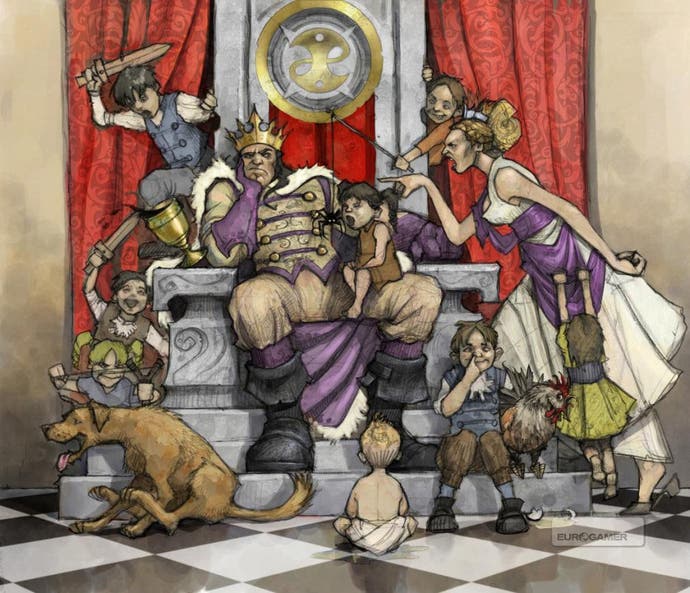
"It's different than that," he adds quickly. "It's very different. Let's imagine you're the leader of a town in Fable, people come to you and say, 'We have this disagreement, what do you think we should do?' and you can say, 'I think this person's right.' But then imagine someone comes and says, 'Oh my God, there's a farmer outside of town and he's doing something horrible.' That's not a situation where you can just decide who's right or wrong. This is actually a guy who's killing people - what do you do? It's about making the tasks you're faced with evolve throughout the game and become more elaborate and demanding."
Murray agrees. "Things like the combat are still core ideals, and we're always going to try and make the game be what you want it to be. If you want to continue on that level, that's likely to be an option. What we're really passionate about is creating more drama, and relationships with other characters that are meaningful to you. So we don't want it to turn into an RTS. You won't see that. It's about keeping the journey very personal and emotional: you'll never lose that perspective. We're an adventure game with extras. We almost want to get away from the RPG tag, and we definitely don't want the RTS tag. It's about you doing things in the world, and that having meaning."
"When you're in power it's still very personal," adds Molyneux who, after all, should know a little about this. "Rulers don't stand on a big balcony and dictate what happens. Rulers are surrounded by people telling them they need to go here and do this and do that. Power's a very intimate thing in this game. The interesting thing is that one of the resources is you: what you're choosing to do is very important. What will you do, what will you deputise? You have to pick your battles and pick your time."
At the moment, with almost everything still under wraps, it's hard to know exactly how to interpret what Lionhead has in mind, although, rightly or wrongly - and let's face it, probably wrongly - the game that sticks in my head most of all throughout my afternoon with the team isn't Black & White or Command & Conquer so much as Little King's Story - an active spin on panoramic strategy with a lot of personality.
Personality: after all, that's the riddle of Fable. Despite - or possibly because - of the blank canvas of your hero, personality is the vital element that makes all the clever ideas come alive, the simple, yet elusive, key to this particular kingdom. For all its ambitions and epic scope, Fable has long been a close-up series, the defining moment coming when you click in the stick to take a nice long look at who you've become, trying to remember where you got so many scars, who gave you those Fat Elvis shades, and the choices that turned you such a malignant, rotting shade of blue.
As any real-world ruler would probably tell you - if you could fight your way through the ranks of security minders and babbling staffers - the grander your intentions, the bigger the risks. For a company named after a hamster, Lionhead doesn't have a history of thinking small; I'm glad to report that it doesn't appear to have picked up a taste for it in the last year or so either.

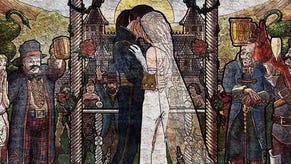
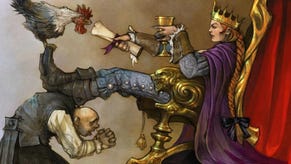
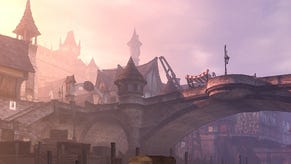
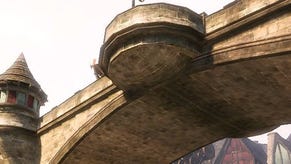
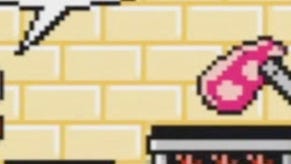
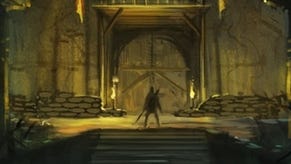
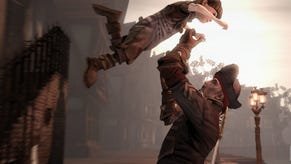

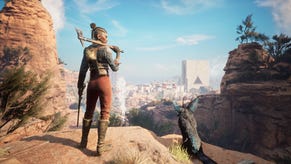



.png?width=291&height=164&fit=crop&quality=80&format=jpg&auto=webp)


